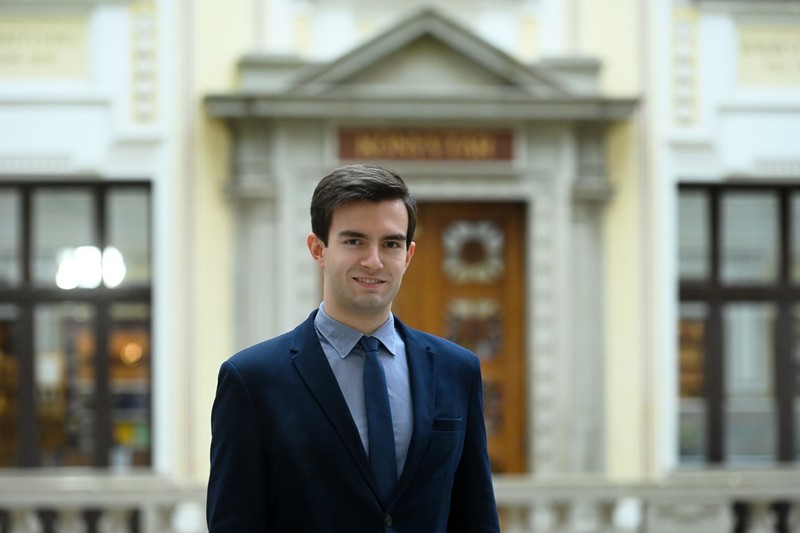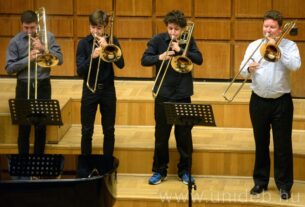A student of the Faculty of Medicine of the University of Debrecen achieved an outstanding result at the international congress of medical students conducting research in the Polish capital. Mihály Székely, who is a member of a research group in Debrecen dealing with the fight against tumors, won his own section, writes unideb.hu.
What effect does a mutation of a nuclear regulatory protein have on tumorigenesis? Mihály Székely, a quarter-year student at the Faculty of Medicine of the University of Debrecen, gave a lecture on this in the Basic Research and Preclinical Sciences Section of the Warsaw International Medical Congress. A total of 17 medical students from various regions of the world presented their results, of which the expert jury found the presentation of the young man from Debrecen to be the best.
Mihály Székely told that he has been conducting his basic research for three years in a six-member working group led by Beáta Lontay, associate professor of the Medical Chemistry Institute of the Faculty of Medicine of the University of Debrecen. According to their hopes, the mutation of the protein in question can be used as a diagnostic marker in the long term.
At the Warsaw Congress, in addition to the Basic Research and Preclinical Sciences Section, lectures were given in 31 other sections, of which the ten best speakers were invited by the organizers to present their discoveries at a plenary session with the participation of renowned medical professors. Mihály Székely was recognized there with a special award.
– It was a great honor for me to be able to present the results of our research to an audience of experts from different parts of the world. I consider the special award a serious recognition, which is a good incentive to continue the work, he said.
Organized by NeurotechEU, Mihály Székely spent two weeks last September in Berg en Dal, the Netherlands, at the Donders Cognition, Brain and Technology summer university, where he participated in nine courses together with students from other European countries. They were primarily concerned with modeling the connections between certain parts of the brain. Thanks to his experience as a mobile game developer, Mihály Székely and his team successfully applied an algorithm tested on a classic video game, following the operating principle of the hippocampus of the human brain. The project was awarded second place.
I also listened to 21 lectures and participated in 9 educations in the Netherlands. In the second week, working in groups, we solved a project task, the results of which were presented on the last day. This school greatly helped my professional development and contributed to the expansion of my network of contacts
– he explained.
The medical student is also an active member of the NeurotechEU Student Council. The student council is now primarily focused on the NeurotechEU event in Stockholm on May 31st and June 1st, where students from universities participating in international cooperation will work together for 48 hours to solve a specific problem. The topic, which has not yet been precisely defined, will be related to mental health. In addition to Mihály Székely, Lídia Gömöri, a fifth-year medical student at the Faculty of Medicine of the University of Debrecen and a member of the NeurotechEU Student Council, will also be present at the event. By the way, Lídia Gömöri recently performed excellently at the National Science Student Conference, which we reported on here.


















